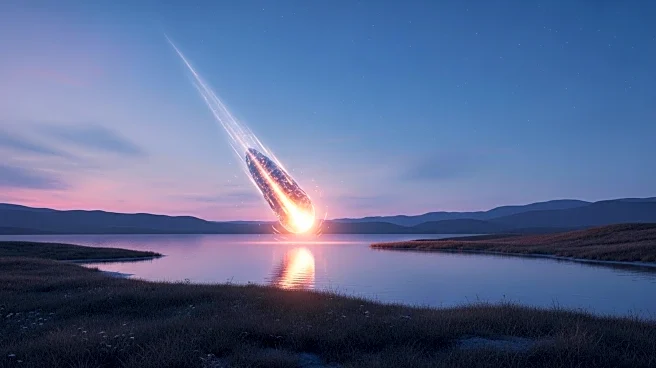What's Happening?
Biologist Robert Endres from Imperial College London has proposed a controversial theory suggesting that life on Earth may have been initiated by extraterrestrial beings. This theory challenges the widely accepted concept of abiogenesis, which posits that life emerged from nonliving organic compounds. Endres' mathematical models indicate that the likelihood of life spontaneously arising from abiotic conditions is extremely low, leading him to consider the possibility of 'directed panspermia'—the idea that life was intentionally seeded on Earth by advanced alien civilizations. This theory, while speculative, is not entirely dismissed by Endres, who acknowledges the challenges in proving such a hypothesis.
Why It's Important?
Endres' theory adds a new dimension to the ongoing scientific debate about the origins of life on Earth. While the idea of alien intervention is speculative, it challenges scientists to reconsider the limitations of current models of abiogenesis. This could potentially lead to new research directions in astrobiology and the study of life's origins. The theory also touches on broader philosophical and scientific questions about humanity's place in the universe and the potential existence of intelligent extraterrestrial life.
Beyond the Headlines
The proposal of alien intervention in the origin of life raises ethical and philosophical questions about the nature of scientific inquiry and the boundaries of speculative science. It also reflects a growing interest in astrobiology and the search for extraterrestrial life, which could have profound implications for our understanding of life and the universe. The theory may inspire further interdisciplinary research, combining biology, astronomy, and philosophy to explore the possibilities of life beyond Earth.









